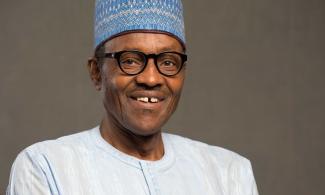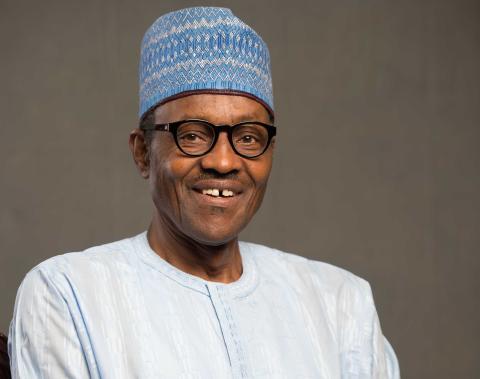
About a month to the elections, already something hidden about Nigeria has emerged.
Is it a fact or fiction – that a certain Nigerian politician is not corrupt? Is it a fact or fiction that a presidential candidate for a political party in the current political system is not corrupt and cannot be identified with any instance of corruption? Is it fact or fiction – that General Muhammadu Buhari, the presidential candidate of the main opposition part, All Progressives Congress (APC), has served as governor, federal commissioner (minister) of petroleum resources, president of Nigeria, and chairman of Petroleum Trust Fund, yet does not have the material acquisitions that have become characteristic of Nigerian leaders and political leaders especially?

Suddenly Nigerians and non-Nigerians are waking up to a new fact – that not all Nigerians are corrupt. Buhari has held the most juicy offices, the highest office in the country, yet he has not soiled his fingers, even less his hands, with corruption.
If Buhari is an exception, let us look around and search a little more. There are many non-corrupt Nigerians. We realize suddenly that most Nigerians are not corrupt. There are corrupt ones, they are visible in the high offices, and often they are leaders in various sectors of the economy. They are noticeable with the dishonorable display of unexplainable material wealth. Yet they remain a minority.
Buhari is far from not having his negative sides; blemishes that are social, political and even ethical. But the one singular, most negative identifier of “Nigerian-ness” in political office, corruption, seems to have almost mysteriously passed by Buhari.
For foreigners who do not like Nigerians, it is easy to find one denominator for this large African country –corruption. It is a word that fits many profiles of the Nigerians that they hear about or know. The Nigerians they have in mind are notorious for 419 – advance fee fraud. Or they deal in drugs or illegal products. Many foreigners recall their sad experience or that of others who went through the airport in Lagos and fell into the hands of customs and/or immigration officers who ‘officially’ robbed them of dollars, pound sterling or euros. The foreigners know or have heard of Nigerian illegal immigrants in their countries who purchase resident permits or even passports illegally. Nigerians will do anything to make money, foreigners say, and sometimes they know or learn of Nigerian politicians who visit their countries and purchase homes, businesses and top luxury cars in cash – such an abnormal way to acquire large assets. It can only be stolen wealth.
Even non-Nigerians who are sympathetic to Nigeria cushion their statements with expressions such as “not all Nigerians are corrupt” and that they know some good Nigerians. As examples, they mention their university lecturers or professors, their classmates in college, their doctors or colleagues at work, a reputable in-law. Despite the profuse expression of niceties, these statements sound apologetic. Such non-Nigerians in their hearts still see a corrupt country.
Yet most Nigerians abroad or visiting other countries are first class professionals, top of the class students, hardworking business people, heads or seniors at institutions and organizations who make their living through hard work and brain power.
The country’s soiled image does not reflect its good people, but mirrors a corrupt cadre of leaders and prominent citizens. A candidate for political office who runs for election “invests” billions of naira to clinch the coveted office and quickly earns his “rewards” in many billions. Pastors, imams and traditional seers choose canvass for customers to get huge tithes and gifts. Priests and imams collect monies from drug dealers, crooks and dubious businessmen to build and equip churches and mosques, or to finance religious activities and personal wellbeing. Government contracts are given to trusted partners who share the money with awardees, officials, and political party. It is known for a fact that many government contracts are awarded and funds disbursed, but not executed. Government leaders, crooks, politicians donate monies, cars, land to traditional leaders and chiefs to get their support and approval. Police officers collect monies and gifts openly on roads and in offices. Rather than provide security to communities and people, many policemen prefer to escort wealthy persons and private individuals, who lavishly feed them, hand out cash rewards. Public assets are sold cheaply and inappropriately to public officials. Artisans such as mechanics, builders, electricians, carpenters, tailors, maintenance and repairs technicians cheat on the materials that they use and services that they provide.
People who fraudulently acquire enormous wealth or assets after serving in government for even a short time are welcomed with drums and dance in their communities. Military officers who earn limited salaries and allowances somehow can afford to pay for three to five students at the most expensive universities in the UK or USA, and can pay all the students’ expenses for one year at once, including for accommodation and feeding. Civil servants use their offices and authority illegally and own rows of houses in Abuja and Lagos in the most expensive places. Celebration and conspicuous display of extraordinary wealth in billions of naira is common and done with impunity even by people who cannot explain how they made a million naira.
“Corrubration” or celebration of corruption has become a national norm.
Yet, many Nigerians do not even have the opportunity to be corrupt nor are they willing to be corrupted. There are many Nigerians who have worked at top positions and walked away from corruption. Buhari is the shining example. Declaring his asset on Facebook, he stated: “I have at least one million naira in my bank, having paid N5.5 million to pick my form from my party. I have around 150 cattle because I am never comfortable without cows. I have a house each in Kaduna, Kano, and Daura which I borrowed money to build. I never had a foreign account since I finished my courses in the USA, India and the UK. I never owned any property outside Nigeria. Never.” He does not even have property in the choice cities of Abuja and Lagos. Can the new fact prompt a movement against corruption in politics, zero tolerance for corruption? Can it ignite a reversal of the perception that Nigerians are all corrupt? Changing norms will take a long time, but let real change begin. Corruption has hobbled the country.
For a former president and someone who was in charge of petroleum and petroleum fund – the jewels in the crown of the country and from which people love to steal – Buhari has shown a mastery of self, and demonstration of incorruptibility.
Look around you, there are many honest, upright and incorruptible Nigerians. Buhari has confirmed the fact. I do know many people who have held important offices and who have escaped the tar brush of corruption. Maybe a new Nigeria will emerge – an end to “corrubration”.
Makinwa is a communication for leadership entrepreneur based in South Africa and Nigeria. Twitter: @bunmimakinwa